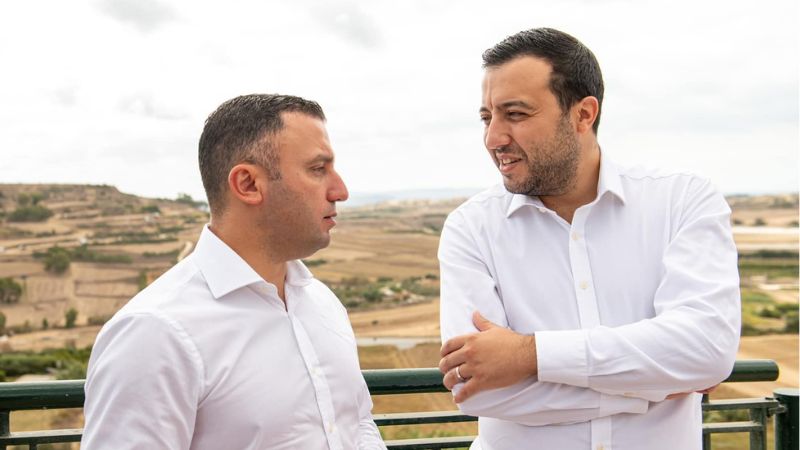What’s the difference between friends and best friends? Friends buy you a sandwich; best friends eat your sandwich.
And the past few weeks have provided more evidence that Robert Abela’s government isn’t a friend to the economy: it’s a ‘best friend’. We’ve seen the leaders of the private sector warn the government — twice — that it is being downright hostile to hard work and honest enterprise.
Ahead of the general election, the government is distorting the labour market with its politics of patronage. Public-sector employment is mushrooming, in numbers far surplus to requirements. Private companies are losing skilled workers, often without warning, and are finding it difficult to keep their enterprises going, let alone to grow them.
Something must be seriously wrong when the alarm is publicly sounded by the Malta Chamber of Commerce, Enterprise and Industry, the Malta Employers’ Association, the Malta Chamber of SMEs, the Malta Hotels and Restaurants Association, and the Gozo Business Chamber.
Some of those organisations loudly protested yet again, together with the Malta Institute of Taxation, the Institute of Financial Services Practitioners, the Malta Institute of Accountants and the Malta Developers Association.
This time it’s in reaction to the government’s effective tax amnesty for a very ‘special’ category of government debtor and tax avoider. To simplify, if you owe the government loads of money from years back, you can offset it against tax owed on property sales.
If, alas, you paid your dues on time, and thereby had less money with which to snap up other economic opportunities, that’s just tough. If you owe back taxes but have no property to sell, that’s tough, too.
The government isn’t just discriminating against the honest operators. It’s also discriminating between different kinds of economic enterprise.
Such actions are beyond outrageous. They are alarming. They are distorting the fundamentals of the economy.
Patronage is moving workers from where they’re economically needed to where they’re not. Labour costs are being artificially raised both for private enterprise and the public sector. The same action bloats the public sector — a risk in an economic downturn — and jeopardises economic growth.
And just when the taxpayer’s burden is made heavier, some rogue taxpayers get a huge discount. The rogues don’t just get away with not paying taxes. They have been able to use money that wasn’t theirs to outbid the honest taxpaying business operator.
The silver lining in all this is that it should burst a widespread illusion.
The post-2013 Labour government conned people into thinking there was such a thing as a free lunch. Or, if it wasn’t exactly free, someone else was paying for it. Say, other Europeans, whose prudent governance raised both the value of their passports (which we then sold) and the productivity of their companies (which then could be domiciled here for tax purposes).
Oh, and we could close an eye to money-laundering because that money came from crimes committed elsewhere. It didn’t harm us.
The sales talk made it out to be more than a free lunch. It was a happy hour that lasted several years: an all-you-can-eat buffet and open bar, with no harmful impact on your pocket or liver.
Cronies made more money than others, of course. But — as the popular idiom phrased it — “everyone could eat”. Some people partied more than others; but everyone had a good time and no one was harmed.
That illusion is fading with every week that passes. It’s more evident that turbo-patronage and cronyism feed on the hard work and investment of honest entrepreneurs and workers. The happy hour? It turns out that we get the bills.
We are discovering just how big those bills can be. We’re hearing about the massive profits that Electrogas expect to make off our backs, once the price stability agreement expires; the needless €100 million that our prime minister hopes he won’t have to pay Steward Health Care; the misspent €400 million invested in new roads that flooded.
The scale of the bills makes the €3 million wasted on the main square in Paola — which needs to be dug up again after a mere three years — look like a pittance.
It’s not the EU that will be paying for all this. It’s us, whether directly, through increased taxes, or indirectly, because of opportunities we must miss to pay for the waste.
It’s more than just waste. It messes up economic organisation, adding to future costs. When the crunch comes, there will also be the pain of necessary, massive economic restructuring.
Abela boasts that his government is the best friend the Maltese economy can have. Yes, the kind of best friend who eats your lunch.













Excellentas usual Mr. Fsadni.
I expect the government will express surprise that they are nowhere near exiting the grey list.
When the bills pile up Malta will be the next Greece
Very clear factual observations .The need to communicate these in layman terms to the gullible electorate is fundamental . That is the biggest challenge .
My fear is that the Labour Party are distorting the economy purposefully. They will increase debt to an almost breaking point and continue to propagate the illusion of wealth. Once a change of government occurs and the next incumbent has to deal with the shambles of a crippled economy, popular thought will be skewed too much to understand the necessity of measures such as increased taxes to make up for the damaged caused by the Labour Party.
THE INCUMBENT PM IS FOLLOWING THE ROUTE
OF HIS DISGRACED PREDECESSOR. LIKEWISE,
IT WILL BE HIS UNDOING.